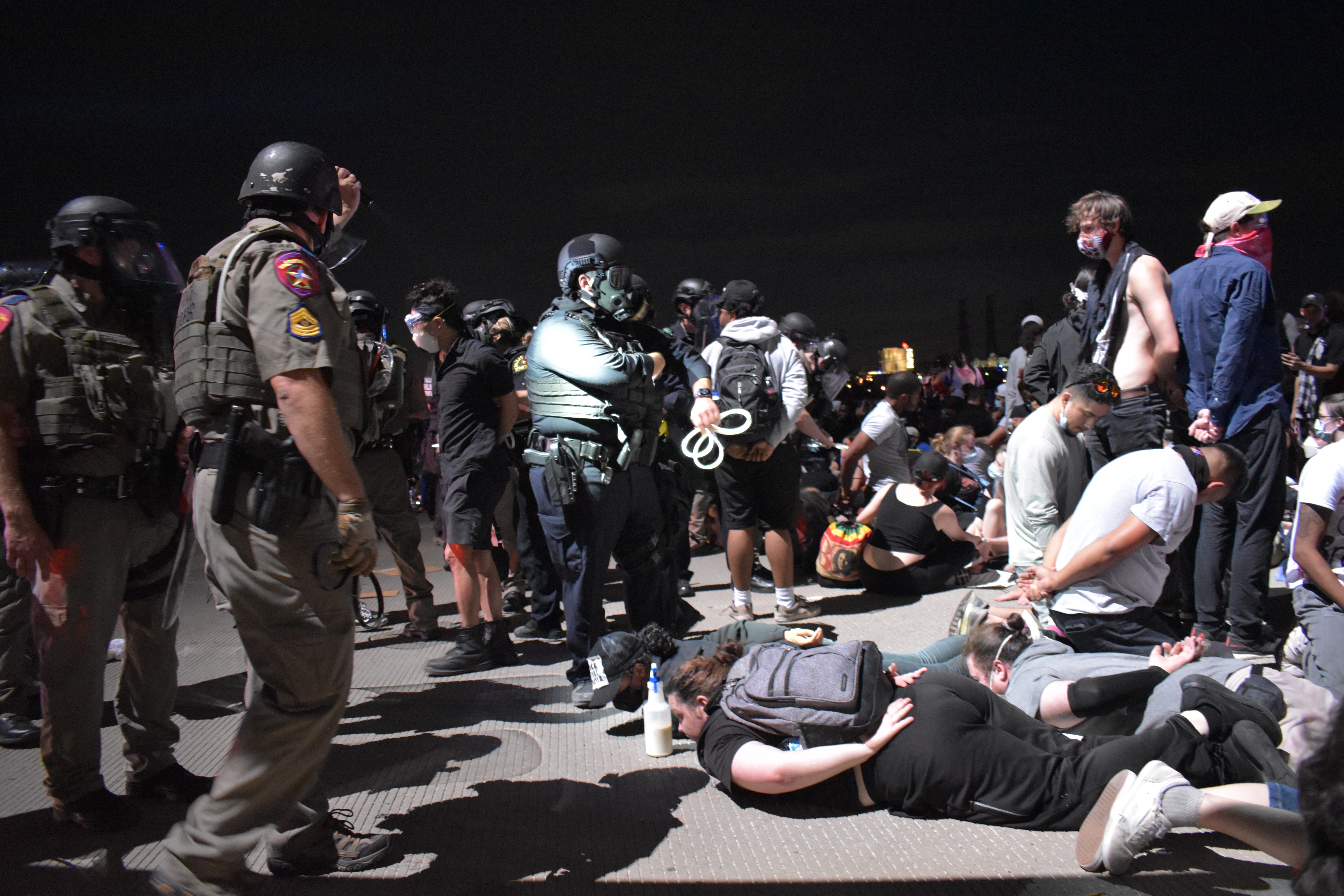Ron DeLord has been the Dallas Police Association’s strategic enforcer for years. A new profile in the New York Times shows how DeLord has pioneered a simple and direct approach to ensuring that the police unions he represents get the benefits and protections they seek: “He has likened a police union going after an elected official to a cheetah devouring a wildebeest, and suggested that taking down just one would make others fall in line.”
In practice, this looks like the attack DeLord launched against Council member Lee Kleinman during his 2017 race, when North Dallas residents received a mailer, highlighted in the Times piece, that called the council member “a menacing threat to the security of North Dallas families.” Over time, the approach has proven extremely effective.
“We took weak, underpaid organizations and built them into what everyone today says are powerful police unions,” Mr. DeLord said in a recent interview. “You may say we went too far. I say you don’t know how far you’ve gone until you’re at the edge of the envelope.”
The New York Times piece details how DeLord helped transform policing in the United States. His philosophy and influence are encapsulated in a 1997 book he coauthored called Police Association Power, Politics, and Confrontation: A Guide for the Successful Police Labor Leader that has shaped union strategies over the past two decades:
The book repeatedly urges union leaders to ignore the “losers,” “whiners” and “naysayers” in their way. “A police association leader must throw out all those traditional notions of right and wrong,” it exhorts. “So long as it’s legal, you do what you gotta do to get where you’re going!” It also quotes one San Antonio union official saying, “If all else fails, we’ll drop the bomb and live in the ashes.”
DeLord got his start as a cop and police union member in Mesquite, organizing a statewide union group in a state that has been historically anti-labor. Police unions proved the exception, and DeLord’s group managed to win better contracts for its members and helped push municipalities toward spending more on police personnel and equipment. Before the police union movement, the Times reports, many of Texas’ police departments were considered “backwaters,” and “some required officers to pay for their handcuffs, bulletproof vests, even insurance for patrol cars.” DeLord’s efforts helped professionalize police forces, but he also helped to transform local politics.
In the 1980s, DeLord tested out a policy in the San Antonio police union contract that would divert a portion of an officer’s pay to a new political action committee. That police-backed PAC became a dominant force in local political races.
The money also built a war room with 100 telephones and computers loaded with voter data. If a politician defied the union, it flooded constituents with negative mailers and calls. The group “would not have to stand in line to have its proposals and concerns heard!” declared Harold Flammia, the union president nicknamed “the .44-caliber mouthpiece,” in a chapter he wrote for Mr. DeLord’s book.
The rest of the Times piece goes on to show how this approach came to dominate police unions throughout the country, leading to a transformation not only of policing in America, but of municipalities’ political landscapes. But there is a growing sense that union power may be starting to slip. In the wake of the Geroge Floyd protests, more municipalities are rethinking their approach to policing, creating new oversight boards and limiting spending on departments.
Unions have also been identified as one of the main forces in pushing urban policies that have seen police budgets grow despite the limited evidence that spending more money on policing leads to safer cities. In Dallas, around 35 percent of the city’s annual budget goes toward police, and, as we experienced in the recent budget cycle, it can be politically difficult to reverse that inertia. Unions also play a critical role in protecting officers accused of wrongdoing.
Here’s the surprising bit: one of the people urging for more union flexibility is Ron DeLord. DeLord is currently negotiating for the San Antonio police union during a contract review. Elected officials in San Antonio want to undo some of the department’s disciplinary protections, among other reforms. DeLord is urging union members to work with them.
“The unions need to bend,” DeLord said. “They need to be prepared to bargain over things that their community thinks are fair.” Unions that don’t understand are “tone deaf,” he added.
What has changed? Simply put: public sentiment. The Texan’s latest book borrows its title from a Robert Earl Keen song: A Message to Police Unions: The Road Does Not Go On Forever and the Party Eventually Ends. It is a remarkable testament to how changing public opinion around policing points to the near inevitability of much-needed reform. In the book, DeLord warns officers that the numerous high-profile incidents of police brutality in violence coupled with the prevalence of body cams have shifted public opinion. Police officers are no longer “the heroes of 9/11.”
“The unions have got to realize they’re just one vote from losing it all,” Mr. DeLord said. He’s expressed similar sentiments over the past nine months on radio, in magazines and on a panel, often alongside reformists.
The Times piece is necessary reading if you want to understand how the inter-relation between police officers, unions, and local governments have shaped policing policy over the past decades. Heading into this May’s Dallas City Council election, we are likely to see many of these approaches play out once again. But it is significant that even the architect of the police union’s effective strategy admits that, to borrow another song title, the times, they are a changin’.





